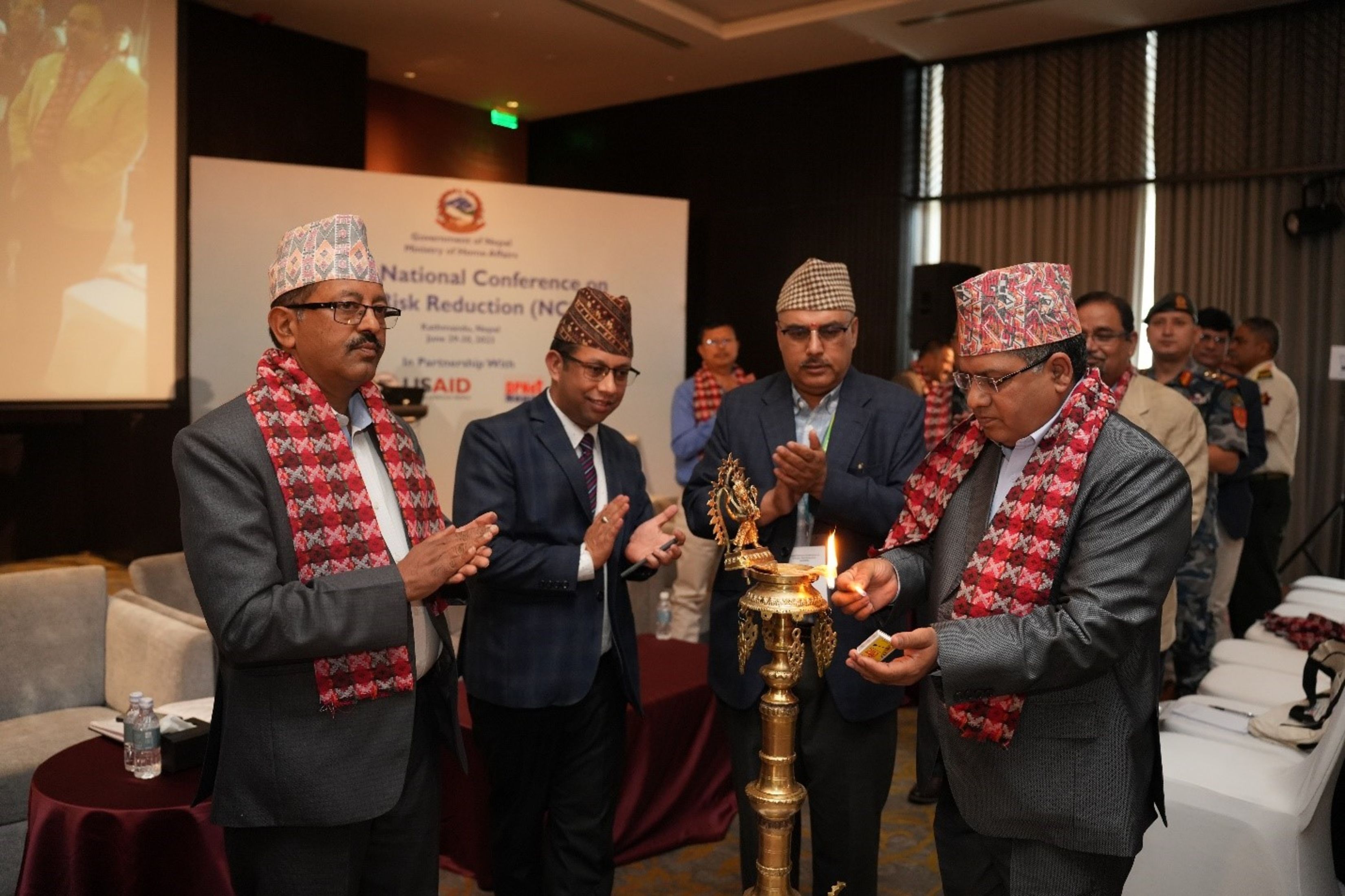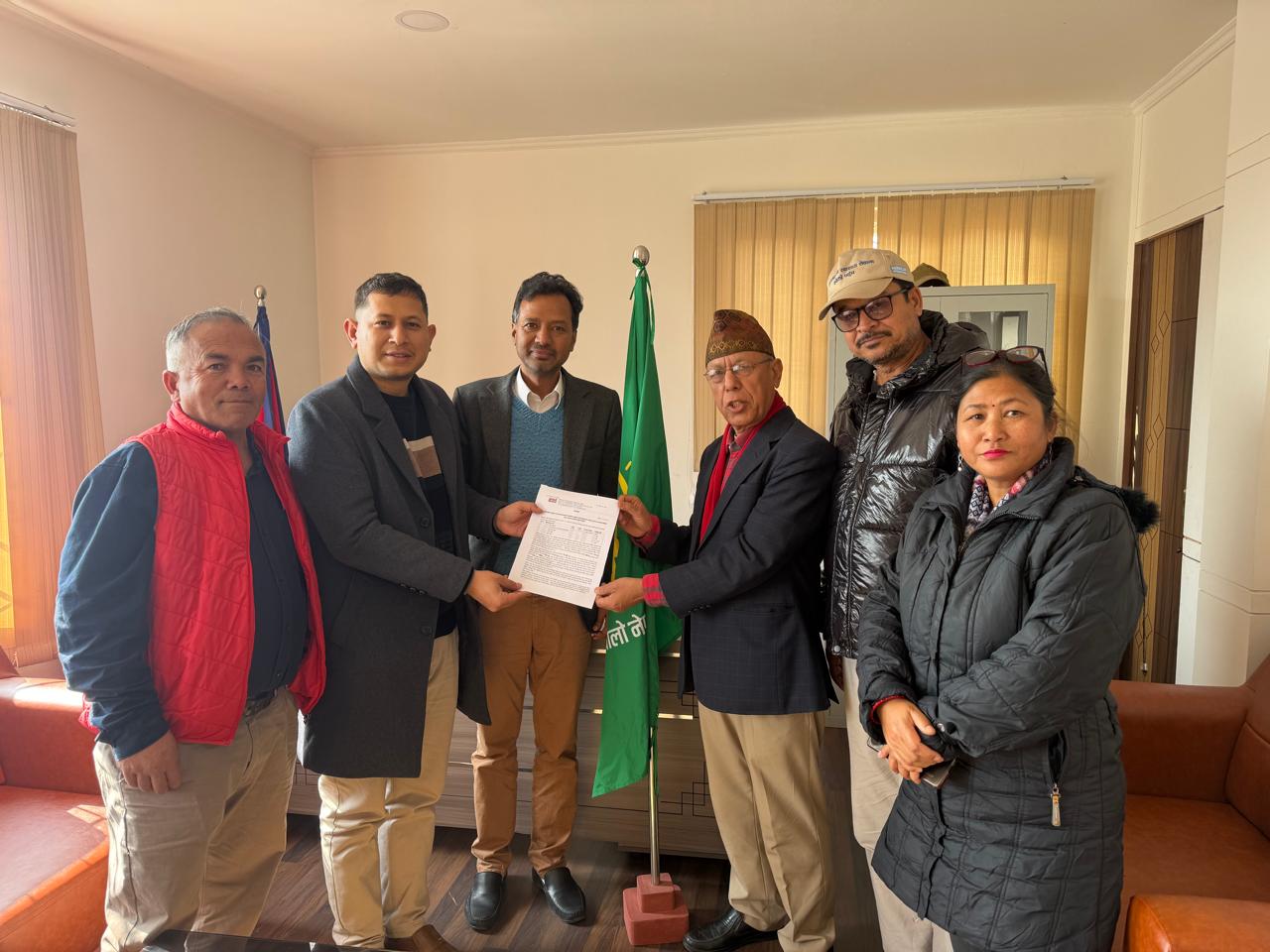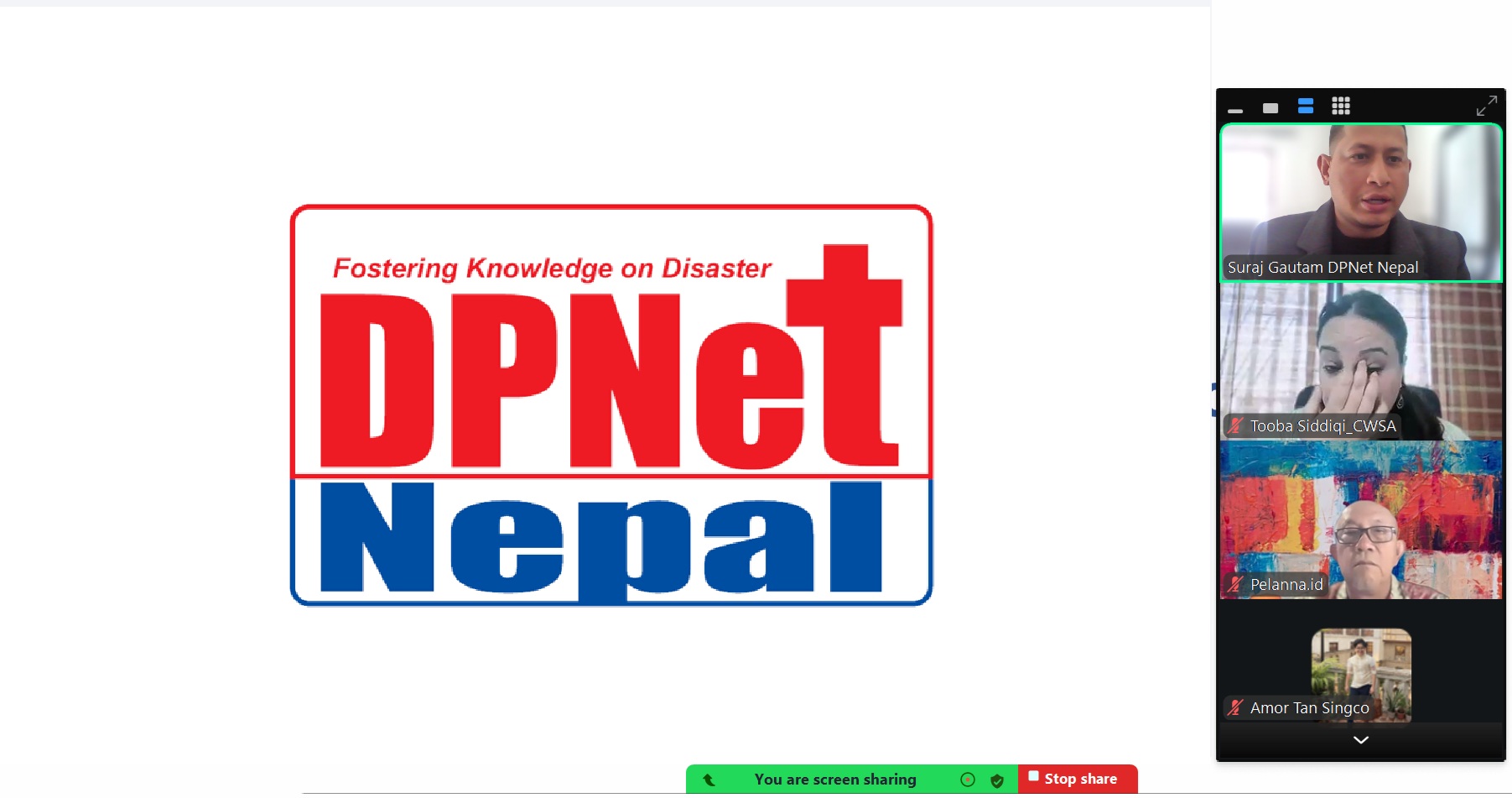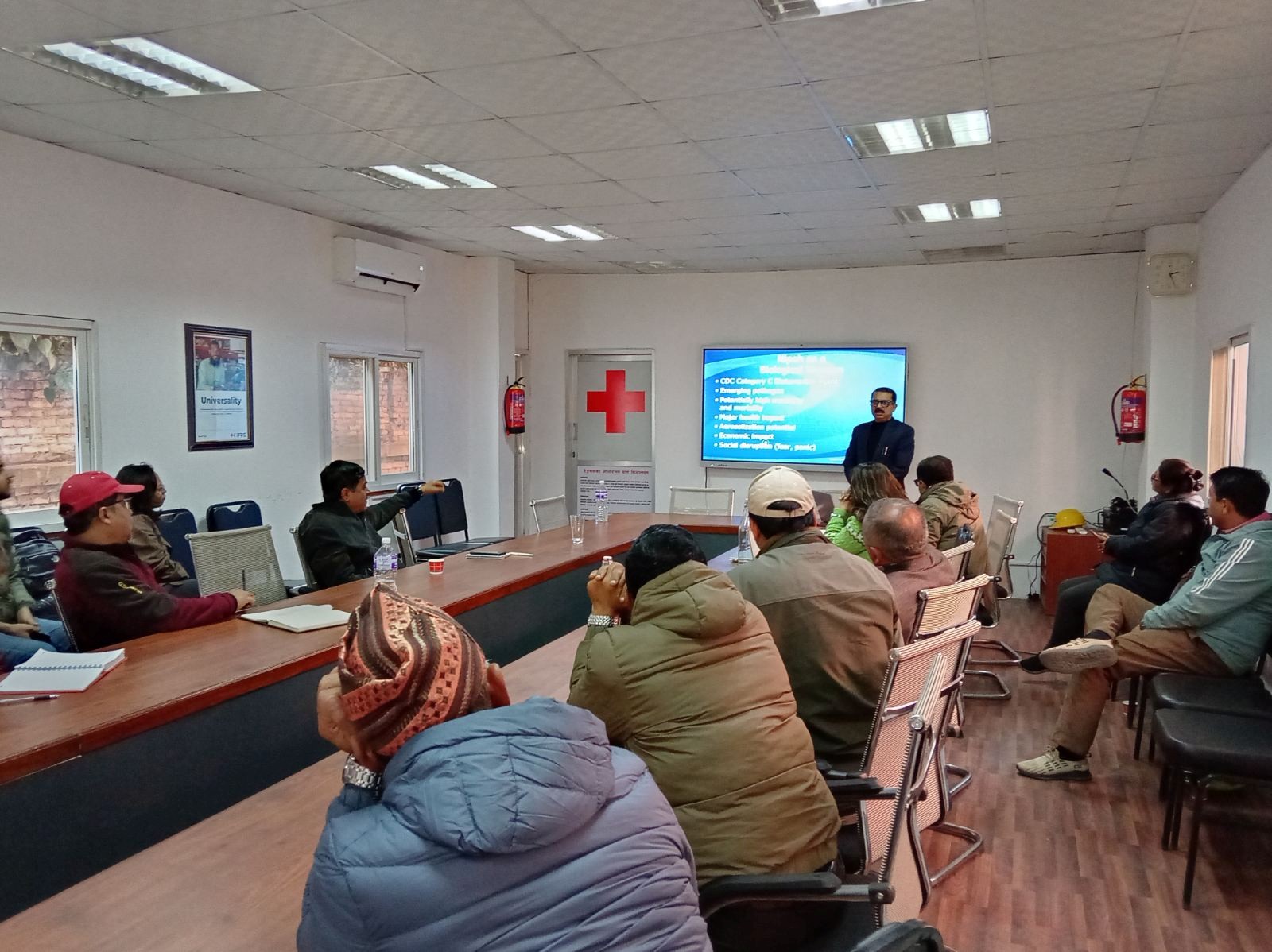Second National Conference on Disaster Risk Reduction (NCDRR)

The two days long ‘Second National Conference on Disaster Risk Reduction (NCDRR)’ concluded successfully in Kathmandu, Nepal from the 29th to the 30th of June 2023. The conference was organized under the leadership of the Ministry of Home Affairs (MoHA) with technical and financial support from Disaster Preparedness Network (DPNet) Nepal and USAID Tayar Nepal. In regard to the midterm review phase of the Sendai Framework for Disaster Risk Reduction (SFDRR) this year, 2023, in the global context, this conference was organized to discuss the four priority areas of SFDRR. It was attended by a total of 319 participants belonging from different backgrounds such as MoHA, MoFAGA, MoUD, MoHP and NDRRMA, private sector organizations, development partners, civil soety organizations, I/NGOs, academia, and the media graced the event with their valuable presence, and ideas sharing.
The opening of the Second NCDRR was honored by esteemed dignitaries from various sectors. Mr. Dinesh Bhattarai, Secretary, MoHA led the event as the Chief Guest by formally inaugurating the conference by lighting a lamp, symbolizing the commitment to illuminating knowledge. The opening session was chaired by Mr. Mahadev Panth, Joint Secretary, MoHA. Ms. Ranjana Rai, Section Officer, MoHA graciously hosted the session and the notable guests delivered opening remarks, focusing on the importance of collaborative efforts and inclusive strategies in disaster risk reduction.
Mr. Tulsi Prasad Dahal, Under Secretary, MoHA, highlighted Nepal's participation in the global Sendai Framework, emphasizing the development of a National Strategy based on this framework.
Ms. Kalpana Aryal, Disaster Risk Management Specialist, USAID emphasized the significance of the 2020-2025 Country Development Cooperation Strategy (CDCS) in health and education and advocated for inclusive decision-making and ongoing planning processes along with the importance and effectiveness of implementing Disaster Insurance/ Financing while developing disaster-related products for DRM that motivates Project grantees.
Mr. Hemraj Dhakal, Vice Chair, FNCCI highlighted the inclusion of DRR in FNCCI's subcommittee, emphasizing the importance of private sector engagement along with the participation of vulnerable communities and persons with disabilities and the effect of disaster in agriculture.
Mr. Surya Bahadur Thapa, DPNet Chair emphasized the conference's importance as it incorporated learnings from previous consultations and conferences. Mr. Thapa urged turning slogans into action, highlighting Nepal's unique constitutional inclusion of the term "disaster." He emphasized collective efforts, feedback, and suggestions as the basis for meaningful change.
Mr. Rudra Singh Tamang, Joint Secretary, NDRRMA highlighted the comprehensive review and reflection provided by the conference in alignment with the four pillars of the Sendai Framework, the importance of collaboration in understanding and taking action in the field of DRR and announced an upcoming national workshop through the National Platform for DRR (NPDRR).
Mr. Krishna Chandra Neupane, Director General, ADCCN emphasized the need for diversified roles, acknowledging the importance of everyone's effort during disasters even concerned impact of social disasters, the impact of climate change on agriculture and indigenous technology.
Mr. Dinesh Bhattarai, Secretary, MoHA and Chief Guest of the event highlighted the event's focus on the four themes of the Sendai Framework.
In regard to the midterm review phase of the Sendai Framework for Disaster Risk Reduction (SFDRR) this year, 2023, in the global context, four technical sessions were held where 20 papers were presented aligning with those four priority themes of SFDRR. A plenary session on ‘Sharing Local Government DRR Practices’ was conducted in which representatives from MoFAGA, various municipalities, MuAn, and NARMIN actively participated. The technical sessions namely are; Session A: Understanding Disaster Risk, Session B: Strengthening Disaster Risk Governance at All Levels, Session C: Investing in Disaster Risk Reduction for Resilience, and Session D: Enhancing Disaster Preparedness for Effective Response and ‘Build Back Better’ under the chairmanship of four experts Mr. Mahadev Panth, Joint Secretary, MoHA (Chief, Disaster and Conflict Management Division), Mr. Tulsi Bahadur Shrestha, Joint Secretary, MoHA, Ms. Saloni Pradhan Singh, Former Member of the National Planning Commission, and Dr. Gangalal Tuladhar, Former Education Minister respectively.
A Marketplace was arranged to demonstrate the learning materials and relevant resources regarding DRR where 26 DRR stakeholders showcased their materials, publications, and productions throughout the program period.
The key outcomes of the conference include:
- The conference launched a hardcopy version of Nepal's Voluntary National Report for the Midterm Review of the Implementation of the Sendai Framework for Disaster Risk Reduction 2015-2030.
- Successful Mid-Term Review and assessment of the implementation of the SFDRR 2015-2030 and identification of existing gaps that contributed to assessing the way forward in addressing those gaps catering to the needs ensuring GEDSI inclusion, majorly focusing on hearing-impaired individuals and individuals with physical disabilities while embracing the participation of all non-binary individuals and groups as well while accommodating EWS, rescue and relief efforts.
- Policy Recommendations for building resilience in a holistic approach with a collaboration between communities, governments, concerned stakeholders, and researchers to address the challenges in DRR.
- Supported the effective implementation of DPNet’s DRR Strategic Plan of Action 2018-2030 while fostering a comprehensive and coordinated approach to DRR among the diverse range of stakeholders involved.
- Exchange of ideas and sharing of lessons learned during field-level implementation and its systematic documentation aided in shaping an idea for the forthcoming presentations of the Government at regional and global DRR events and preparation of the DRR Journal of DPNet.
Major learning from the recommendations:
- To effectively implement SFDRR and DRR policies, further enhancements on disaster insurance/financing, risk management integration in development processes, investing in preparedness measures, fostering collaboration among different levels of government, conducting risk and multi-hazard assessments, prioritizing research and development initiatives, enhancing volunteer management systems, constructing resilient structures, disseminating knowledge and information, developing and harmonizing policies, and prioritizing resilience in development projects needs to be made.
- Need for increased awareness and active involvement of stakeholders in order to effectively incorporate GEDSI principles into disaster management considering meaningful participation and leadership of all individuals, encompassing diverse backgrounds and abilities, throughout the stages of preparation, rescue, relief, and simulation practices.
- Importance of enhancing the role of science, technology, and innovation in DRR, such as the development and adaptation of homegrown technology for effectively addressing local issues and improving the overall well-being of Nepalese society.
- Need to prioritize and strengthen the engagement of experts and academia throughout the planning phase of DRR, focusing on evidence-based research along with a focus on media involvement on pre-disaster preparation and resilience-building efforts.
- Establishing operational preparedness, coordinating various sectors' capabilities, regular drills and enhancements of public health emergency preparedness, as well as addressing mental health and psychosocial support is crucial in Public Health Emergency Management.
- Recognizing the role of the private sector in disaster resilience by viewing them as partners and advocating for their active engagement in pre-disaster planning and preparation, promoting the implementation of business continuity management practices can encourage investment in disaster-resilient products and services.
As a closing remark, Mr. Surya Bahadur Thapa, DPNet Chair expressed appreciation towards the participants, authorities, and volunteers for contributing to the conference's success. He emphasized the importance of compiling a comprehensive proceedings report and providing accessible presentations on the DPNet website for continued access.
Mr. Tulsi Prasad Dahal, Under Secretary, MoHA highlighted the significance of gathering recommendations and feedback for future programs. He emphasized promoting inclusiveness through disability-friendly publications and adopting a GEDSI approach, utilizing homegrown technologies, addressing fire hazards, and prioritizing the development of a Business Continuity Plan to enhance DRR efforts and build resilience.
Mr. Mahadev Panth, Joint Secretary, MoHA took over the closing ceremony of the conference by acknowledging the valuable feedback received throughout the conference. Mr. Panth shared insights from previous reconstruction efforts and expressed heartfelt gratitude to all individuals involved in organizing and participating in the event.
The details of the conference can be accessed at: National Conference on Disaster Risk Reduction (NCDRR) 2











